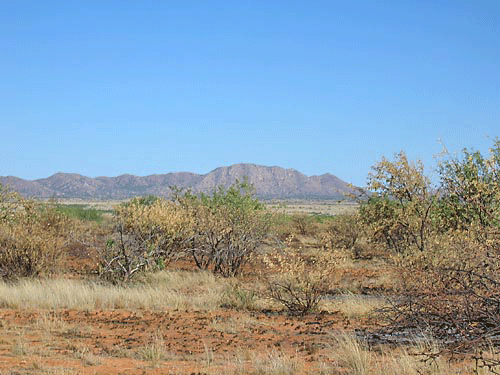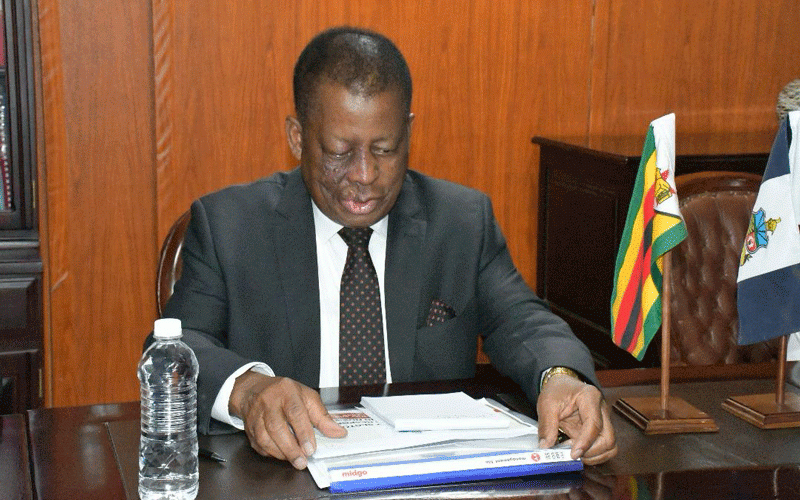
Zimbabwe, similar to 196 countries worldwide, is signatory to the United Nations Convention to Combat Desertification (UNCCD). The convention was established in 1994, and is the sole legally-binding international agreement linking environment and development to sustainable land management.
The Convention addresses Desertification, Land Degradation and Drought (DLDD) and their impacts on human life and the environment. The country ratified the convention in 1997, since then, a number of sustainable land management projects and programmes have been implemented.
Strategic objectives of the UNCCD
- The UNCCD seeks to achieve five strategic objectives, namely:
- To improve the condition of affected ecosystems, combat desertification/land degradation, promote sustainable land management and contribute to land degradation neutrality.
- To improve the living conditions of affected populations.
- To mitigate, adapt to, and manage the effects of drought in order to enhance resilience of vulnerable populations and ecosystems.
- To generate global environmental benefits through effective implementation of the UNCCD.
- To mobilise substantial and additional financial and non-financial resources to support the implementation of the Convention by building effective partnerships at the global and national level.Fourteenth session of the conference of parties to the UNCCD
The conference of parties to the UNCCD is held every two years for dialogue between member countries on the implementation of the Convention, as well as knowledge and technology transfer for sustainable land management.
The 14th session to the UNCCD is running during the period September 2-13, 2019 in New Delhi, India under the theme Investing in Land; unlocking Opportunities. The priority issues of focus in the conference include, drought, land tenure, ecosystem restoration, climate change, health, sand and dust storms, cities of the future, financial investment, and the roles of youth, non-governmental organisations and the private sector.
The Zimbabwe, delegation is comprised of officials from Environment, Tourism and Hospitality Industry ministry, Environmental Management Agency (EMA) and Forestry Commission.
Zimbabwe’s commitments under the UNCCD
Zimbabwe actively participates in the implementation of the UNCCD and in 2018 committed to the achievement of Sustainable Development Goal 15.3 which seeks to “combat desertification, restore degraded land and soil, including land affected by desertification, drought and floods, and strive to achieve a land degradation-neutral world” by 2030. In this regard, Zimbabwe committed to the restoration of at least 1.5 million hectares of degraded land.
- Chamisa under fire over US$120K donation
- Mavhunga puts DeMbare into Chibuku quarterfinals
- Pension funds bet on Cabora Bassa oilfields
- Councils defy govt fire tender directive
Keep Reading
How can Zimbabwe achieve land degradation neutrality?
The achievement of this target calls for an integrated approach by all sectors; individuals, corporates, government departments and civil society organisations towards sustainable land management.
The initiatives range from planting a tree at household level; practicing sustainable agriculture and putting in place conservation works in agricultural land, reclaiming gullies, clearing land of invasive alien species such as lantana camara around your property.
Institutions are urged to engage in corporate social responsibility programmes to rehabilitate environs around their areas of operation, rehabilitating disused pits and mining sites, among others.
In conclusion, Zimbabwe remains committed to the implementation of the provisions of the Convention which are aligned strongly with our national policies as enshrined in the Constitution, which in Section 73 provides every citizen a right to a clean, safe and healthy environment.
In addition the national economic blueprint, the Transitional Stabilisation Programme also highlights land management as a priority issue for sustaining community livelihood and economic growth.
Send your feedback to: [email protected], like us on Facebook: Environmental Management Agency and Twitter:@EMAeep or visit our website www.ema.co.zw. Alternatively, call us on: Tel 086 77006244 and Toll-free 08080028; or use our WhatsApp platform 0779565707. We are ready to listen.











